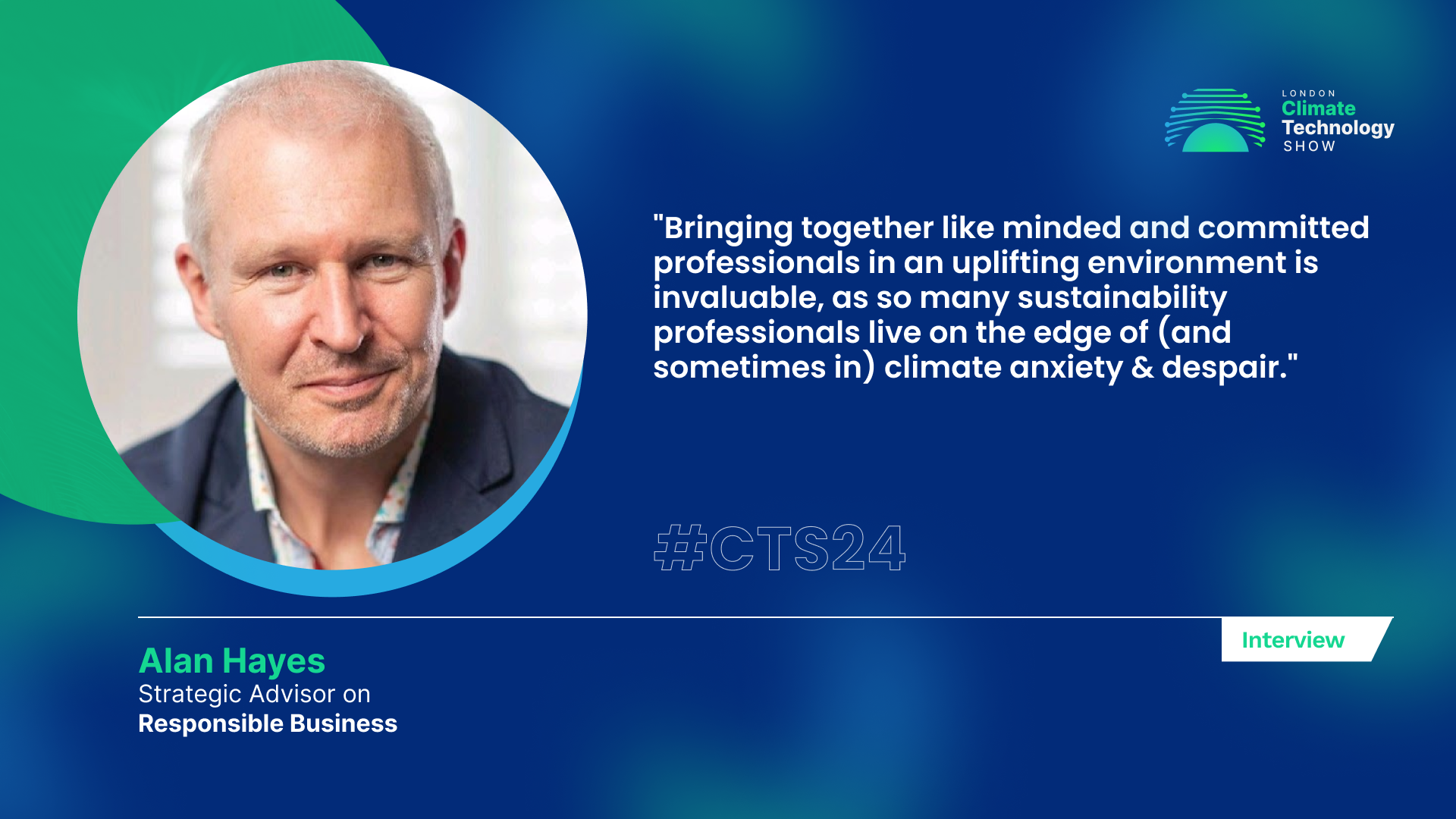To combat the urgent threat of Climate Change, everyone has a role to play. Businesses, for instance, need to embrace the concept of Responsible Business, which entail environmental, social, and economic sustainability across their operations and throughout their supply chains. In a recent interview, Alan Hayes, a seasoned responsible business strategic advisor for various organisations, including Samworth Brothers and Defra and Cranfield University, discussed with Muhammad Younis various strategies and approaches for engaging the extended supply chain to tackle sustainability challenges that affect both communities and ecosystems.
#CTS24: Could you elaborate on the definition of Responsible Business; what does it entail?
Alan: Responsible Business (at Samworth Brothers, where I led the function as Interim Group Director) covered:
- Environmental, Social and Economic Sustainability
- Climate change, including Net Zero - within own operations and along the entire supply.
- Health and wellbeing
#CTS24: In your experience, what strategies and approaches are effective in engaging the extended supply chain to address sustainability issues that impact communities and ecosystems?
Alan:
- Common understanding of the challenges faced which are collective – this is the most important starting point
- Developing that common understanding requires extensive dialogue and sharing of perspectives, and builds trust
- From here, transparent sharing of data (deforestation, human rights, emissions, agricultural practices, audit performance ….) is next
- Communicating end user and customer mandatory requirements in ways which supply chain actors can understand and access
- Continuous dialogue
#CTS24: How many years have you been professionally involved in sustainability related issues, and how has your perspective evolved during your career?
Alan:
- 21 years professionally (beginning with food waste in 2001); since childhood in many respects though (over 50 years, see below)
- Working with consumer facing organisations, I was quite surprised early in my sustainability career when I learned of the competitive forces and the drivers for differentiated sustainability strategies. My starting point was environmental, a “one planet” approach leading to common approaches to addressing our adverse impacts.
- Over time, I have come to realise how I can harness such forces. “Yes, and ….” has become my approach, harnessing competitive, brand and marketing forces to strengthen sustainability strategies & delivery plans.
- In the past few years, I have come to realise that the pledge to action gap in so many organisations is significant, analogous to the attitude & action gap which we display as consumers.
#CTS24: You have mentioned your upbringing on a dairy farm and a family steeped in cooperatives and collaboration. How has this background influenced your commitment to sustainability?
Alan:
- My background enabled me to have an intuitive and deep rooted understanding of both social and economic sustainability in practice, long before I began to learn the academic discipline
- Subsequently, I saw environmental impacts first hand as Irish dairy followed best practice from around the world, such as New Zealand
- I have also seen the impact of collaboration across organisations and between competing parties, especially the vital role of those convenors who are prepared to go the distance necessary so that effective collaboration can take place
- Understanding the benefit of market access and how this differs from the impact of market forces has been a hugely valuable lesson over many years.
#CTS24: How does your organization currently address the challenges of climate change? Could you provide specific examples of initiatives or strategies in place?
Alan: In my work with Samworth Brothers and other clients, I take an approach which is based on the following principles:
- Be led by double materiality assessment - where climate change is likely to be a high priority material issue
- Make commitments which are aligned with the magnitude of your organisation’s impacts on climate changing emissions
- Assess organisational capability to deliver these commitments and build capability where needed - this is the game changer, as most organisations do not have the capability to deliver when the make commitments
- Take meaningful action – pledges and commitments without implementation of meaningful action is story telling
- Govern from board level down
#CTS24: The London Climate Technology Show is meant to facilitate dialogue towards a sustainable future; what is your take on events of this nature?
Alan: Events like the London Climate Technology Show can bring several benefits:
- Dialogue which brings focus on meaningful action, beyond pledges and commitments, is vital as we seek to address the pace and scale of climate impacts.
- Sharing common problems, understanding how to reframe these as problem statements which can be addressed.
- Bringing together like minded and committed professionals in an uplifting environment is invaluable, as so many sustainability professionals live on the edge of (and sometimes in) climate anxiety & despair.

